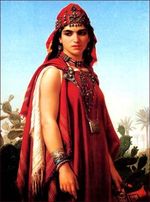Template:Pictorial-Islam-options: Difference between revisions
| [checked revision] | [checked revision] |
mNo edit summary |
mNo edit summary |
||
| Line 1: | Line 1: | ||
<noinclude>Also see: [[Template:Pictorial-Islam]]</noinclude><!-- HELP NOTES: Each option tag handles one random story --><choose> | <noinclude>Also see: [[Template:Pictorial-Islam]]</noinclude><!-- HELP NOTES: Each option tag handles one random story --><choose> | ||
<option weight="1">{{Pictorial-Islam|1=Qur'an and a Universe from Smoke|2=[[File:Nebulea fig 2.jpg|250px|link=Quran and a Universe from Smoke]]|3=Prominent apologists such as Harun Yahya and I. A. Ibrahim have claimed that the Qur'an contains an accurate account of the formation of stars and early phases of the Universe. The entire apologetic argument rests on the Qur'anic description of the "heavens" as "smoke"; a claim which in-turn rests on a false equivalence made between smoke and the makeup of the early universe. The attempt to show that the Qur'an correctly describes the formation of stars (by quoting a portion of Qur'an 41:11) and then the earth (by quoting Qur'an 21:30) is shown to be disingenuous. When the whole of verse 41:11 and its surrounding verses are read in context, it provides a clear chronological account of the earth being formed first and then the hills and sustenance are created upon it. Only after the earth has been created does Allah create the stars. The entire account in the Qur'an is not an accurate reflection of the formation of the Universe. ([[Quran and a Universe from Smoke|''read more'']])}}</option> | |||
Revision as of 03:28, 29 December 2013
Also see: Template:Pictorial-Islam
|
